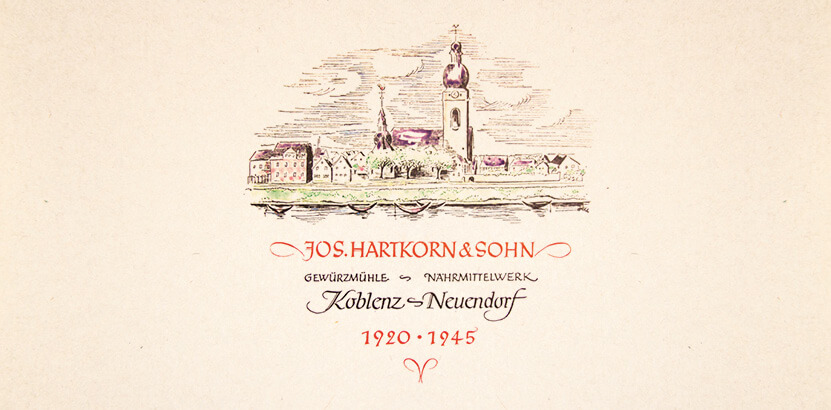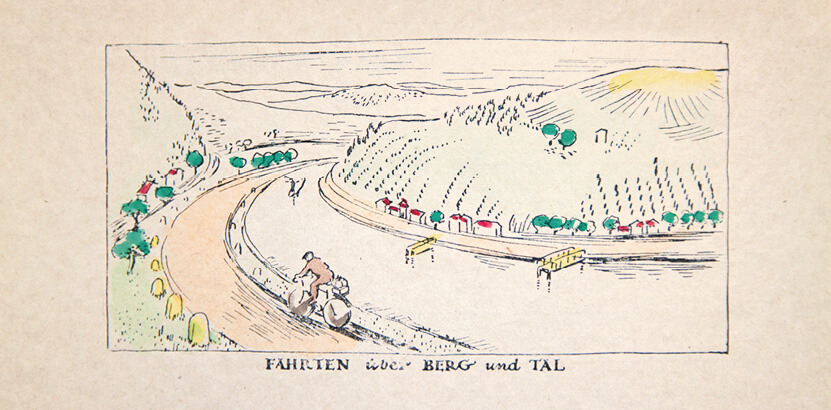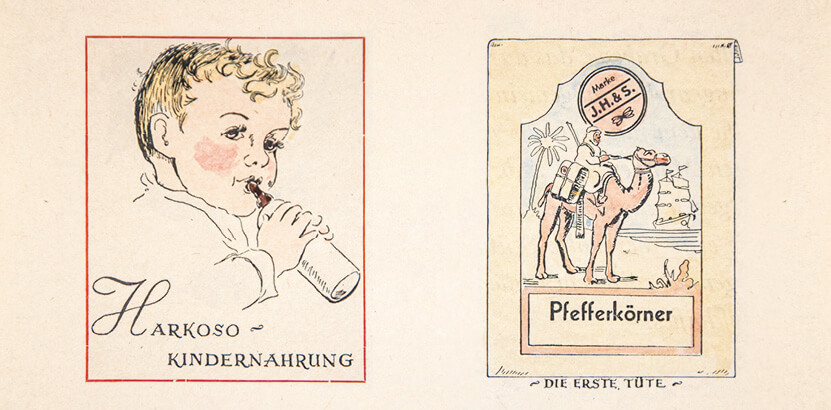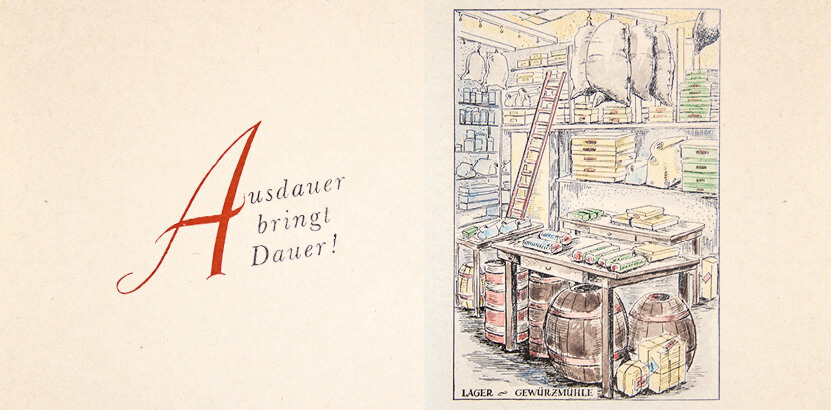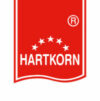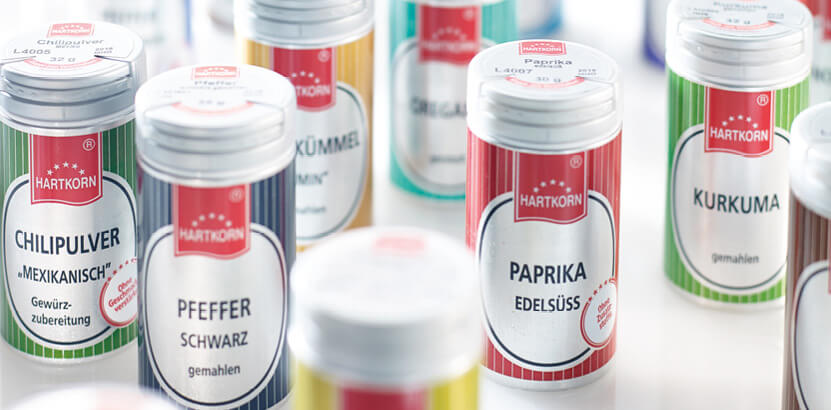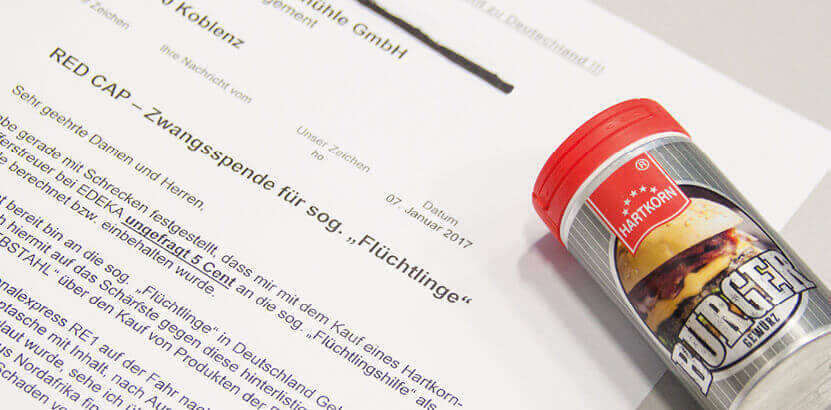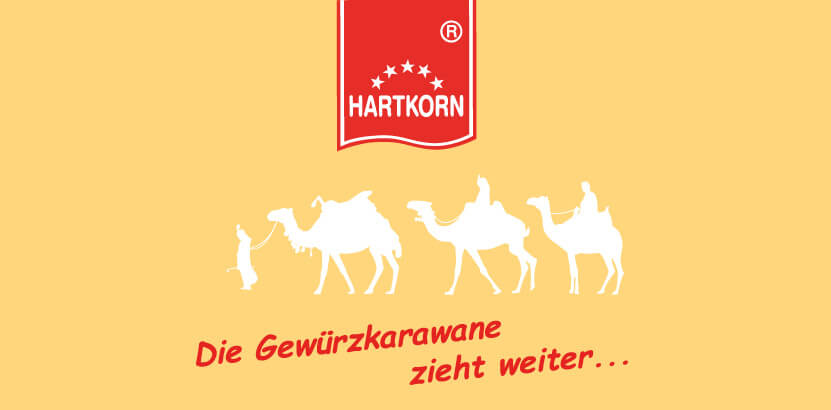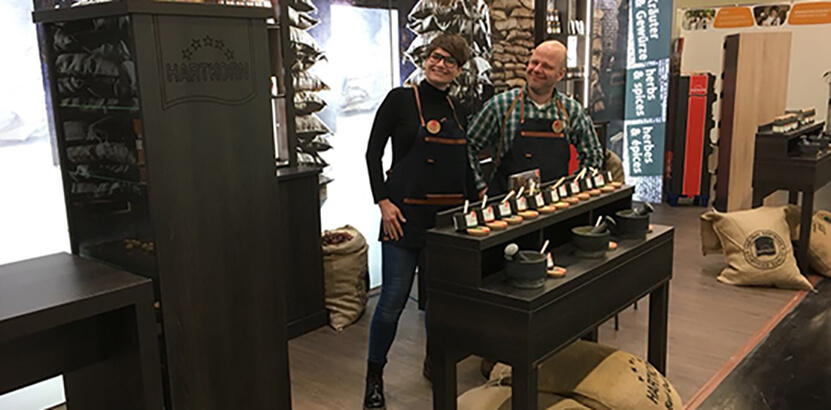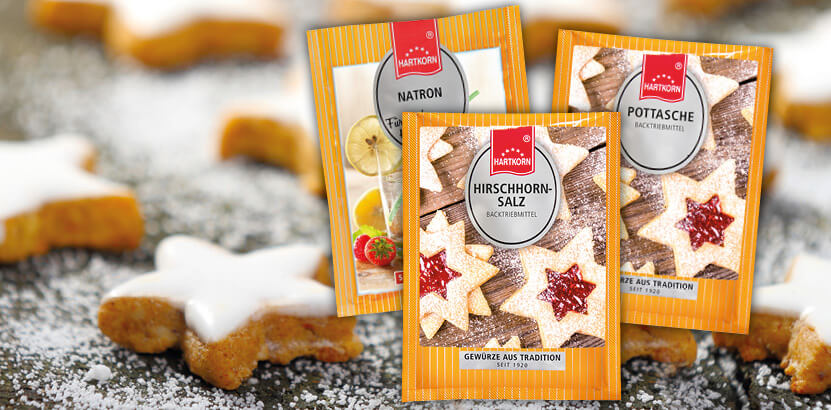A lot often accumulates over the years and a lot is forgotten. We found a little darling here that tells of the first 25 years of hatkorn history – probably the most difficult time for the company. During this time, not only did you have to deal with the usual initial difficulties, the Second World War was just around the corner. No matter how hopeless the situation seemed, the entrepreneurial spirit could not be broken and you can still feel it today.
We were able to elicit the following facts and events from this testimony: The company Josef Hartkorn & Sohn was founded in 1920, which was almost the result of the previously lost war and the associated economic difficulties. The main initiator was Anton Hartkorn, who laid the foundation stone for the company with his father Josef. As a trained druggist, Anton Hartkorn worked in retail sales and recognized the business opportunities in the industry. The first products were baking powder and vanilla sugar, later spices and medicinal teas were added. Production took place on Saturdays, Sundays and Mondays and Anton Hartkorn took over sales on the remaining days of the week, partly on foot and partly by bicycle. A firm customer base existed in the Eifel, on the Hunsrück, in the Moselle and Nahetal, to Idar-Oberstein. This strenuous task could only be mastered with a lot of energy, many personal sacrifices and a strong belief in the company, and the fields of activity grew steadily. In 1924, an in-house print shop was founded, in which the first worker was hired and later also Christine Schemmer, who married Anton Hartkorn in 1928.
The company became more and more stable and difficulties and setbacks were overcome thanks to the solid foundation, healthy construction and the flowing income. In 1924 the first sales representative who was responsible for the Upper Moselle was hired. It was a complete success and more representatives were hired. Production was in full swing and in 1925 a small spice mill for baking powder production was set up and 4 to 5 additional workers were employed. The first filling machine followed and in 1928 the total workforce comprised 16 heads. In the same year came the first touring car, which got the business rolling even more and was innovative for that time. This year, spices have emerged as best sellers. Since great importance was placed not only on the quality of the goods, but also on the presentation of the products, a separate printer was set up, which was responsible for typesetting and printing. A second touring car came in 1930, because the aim was not only to maintain the customer base, but also to expand it. New filling machines and spice mills were added, and more production and storage rooms were needed.
The nutrient plant was founded in 1935, where vanilla sugar, baking, pudding and sauce powder, baking flavors, gelatin products and cake additives were produced. A year later, the children’s food “HARKOSO” became the market leader thanks to its good quality. 1937-38 was worked in a two-shift system and in Austria you could win customers and hire a representative. Despite the distance, the large number of customers and the responsible employees, Anton Hartkorn did not want to lose personal contact with the customer and regularly visited them personally.
The Second World War broke out in 1939 and slowed the company down. Many employees were drawn in for use at the front and trucks and cars were confiscated. The company was not only burdened by the lack of employees, but also by the so-called reference certificate system, which also took a long time to process. Everywhere you had to tackle, improvise and organize. The bombing of Koblenz began in 1943. The most necessary daily work program was carried out under physical and mental stress and customer relationships were maintained. By 1944, the employees had fulfilled their tasks despite the direct danger to life. In 1945 Koblenz was in ruins and an alternative office and two alternative camps were set up in the vicinity, which were not spared by bombing. In March 1945, the warlike events rushed and the entire business was suspended for 14 days. But already on April 3, immediately after the American occupation, work in Neuendorf was resumed. More and more employees found their way back to Hartkorn, so that a 30-man team was able to work on the reconstruction and expansion.
In 1946 a branch plant was built in Marktbibart. Despite the war years, the quality of the products was always good and now the American and French military governments were also convinced of the high quality. Hartkorn was commissioned to create a high quality children’s food.
Here are a few illustrations from the magazine:
